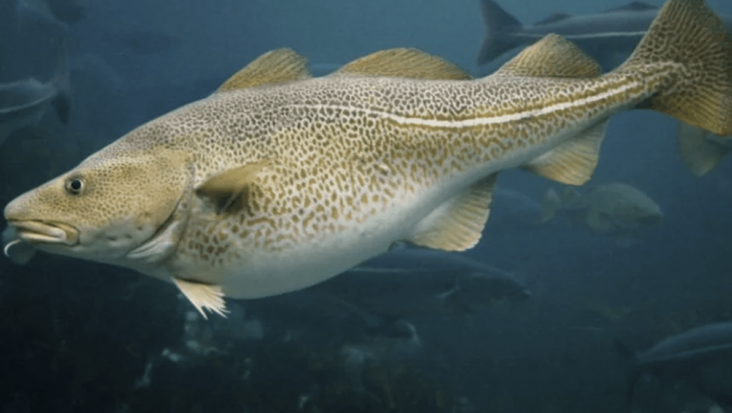posted October 18, 2022
My Tale of Woe
First, I will remind you that the image you see above is a living being who had no responsibility at all for my tale of woe described below.
Second, I will explain why I am writing this essay.
In January of 2022, I developed osteomyelitis (a bone infection) in my right foot. It had developed to the point that surgery was required. As I was being wheeled into surgery, I was told my entire right foot would need to be amputated. As it turned out, this was not required and the brilliant surgeons were able to save my foot. However, my right big toe was amputated and I was left with a huge, gaping surgical wound from my big toe, across the bottom of my foot and several inches up into my right ankle, where the surgeons had to cut away the infection.
Just as an FYI, I do not recommend this situation to any of you.
A few days after the procedure, the surgeon came into my hospital room to check on me and discuss next steps. The conversation went like this.
Surgeon: “The operation was successful. We were able to save your foot, but you have a major surgical wound that will need to heal. Next week we will do a skin graft to close the wound and help it heal.”
Me: “OK. Where will the skin for the graft come from?” (thinking he would say my leg, or hip, etc.)
Surgeon: “Now we use cod skin for skin grafts. It is efficient, does not require any surgical graft of you own skin, and will really speed up the healing process.”
Me: “So, are you saying that you will use the skin of another living being, a codfish, to heal my surgical wound?”
Surgeon: “Yes, that is the indicated medical procedure.”
Me: “I have a problem with that. I am an ethical vegan and I oppose the use of animals for the benefit of humans, whether for food, clothing, or any other purpose.”
Surgeon: [blank stare}
Me: “What is the alternative treatment?”
Surgeon: “Well, we can see if it heals on its own, but it is a major wound and this will take a long time, and the healing process will be painful.”
Me: “It will not be as painful for me as it would be for the codfish. I guess this is the path we will have to take.”
Did You Know…
I was initially shocked at the idea that a codfish would be cavalierly killed to assist me in my healing process. I had no idea that animals were used in medicines and medical devices. Of course, I’m familiar with the issue of using animals for pharmaceutical and cosmetic testing, and the training of physicians and veterinarians. I’m also aware of of the efforts of PETA, Physicians Committee for Responsible Medicine, and other organizations to end this. But I am talking about the widespread use of non-human animals in products that are used to treat humans. I suspect that you may be unaware of this, just as I was until confronted with it in that hospital room.
I am obviously not a doctor or researcher, so I am writing this from my own personal experience, and with input from Dr. Alka Chandna, Vice President of Laboratory Investigations Cases at PETA, a contribution from Diane Rose-Solomon (from our Compassion Consortium community), and from the articles cited below.
Use of Animals in Medicine

Rather than overwhelm you with information regarding the common use of animals in human medicine, following is a list of resources that you can access to learn about this issue, possible alternatives, and what is being done in the animal rights world to deal with this. I think you will be shocked, or at the very least surprised.
World’s First Vegan-Certified Paracetamol
Use of “Pig Parts” in Medicine
Which Medications Contain Animal Byproducts
Medicines/Pharmaceuticals of Animal Origin
Animal Derived Medicines May Conflict with Religious Patients’ Beliefs
How Many Animal Products in Your Meds?
Threatened and Endangered Species Used in “Traditional Medicine”
Common Medications Contain Animal Products
Animal Products in Pharmaceuticals
What Is My Point?
First, let me explain what is not my point.
I am not writing this essay to beat up on non-vegans or persons who use medicine or other products that contain animal-derived ingredients. I do not engage in criticizing, demeaning, or denigrating other humans who are either not Vegan or do not interpret ethical Veganism in exactly the same way I do. I didn’t become vegan until my late 40s and my grasp of what this means in my life continues to evolve. I do not believe that I am in a position to judge any other person regarding their life choices.
I totally get it that, even if you agree with my views on ethical Veganism, we have a limited ability to live totally in accordance with our Vegan lifestyle and spiritual principles. We do not live in a Vegan world. Even for a committed (some would say extremist) ethical vegan such as myself, it is pretty much impossible to live a 100% vegan lifestyle. This is probably true most of all on the issue of the medicines that may be necessary.
But — and this is a big but — we all have the ability to make choices. If you are concerned about compassion for all living beings (and if you not, you would have become bored and quit reading this essay long before this), you will be interested in making choices, wherever possible, to reduce or eliminate your use of animals for any reason. Even if we cannot live a perfectly Vegan life, we can make compassionate choices for all living beings. In today’s world, we can choose not to engage in what I refer to the 3 F’s; i.e., the use of non-human animals for human food, fashion, or fun. We can choose not to eat foods that contain animal products. We can choose not to wear wool, leather or other animal products. We canchoose to not go to zoos, circuses with animals, SeaWorld type venues, or rodeos. We can choose to adopt companion animals who have not been bred in cruel “pet mills.”
And, to a certain extent, we can choose to not torture and kill non-human animals in the medicines we use.
In closing, I will make two points:
-
No matter what any religious, governmental or other “person of authority” may tell you, I do not believe that God (however you may define him/her/them/it) put animals on earth for humans to torture, slaughter, and use however pleases or benefits us.
-
Non-human animals have moral parity with humans. They are sentient. They feel pain. They have emotions. For each of them, their life is as important and precious as our lives are to us.
So, I am just providing some information in this essay that you may not have been aware of, and requesting that in your interactions with the healthcare system you be aware of any impact on non-human animals, and consider alternatives when available.
Now, to complete my tale:
My amputation was February 1st. It is now August, so after 7 months, my surgical wound has almost totally healed. Now I begin the long, arduous task of growing my toe back.
(Note: that last sentence was a joke).
I made my choice on the issue of compassion for all beings, and I invite to make your own choices.
Lastly, and most importantly, I take great comfort in knowing that somewhere out there in the Atlantic, there is a codfish swimming around doing whatever it is that codfish do for fun, who thanks me.
 Rev. William Melton was, in his first career, an international business and technology lawyer living in seven countries and working in more than thirty others. This gave him exposure to myriad cultures and religions. In 2019, he decided to shift gears and pursue a ministry of compassion dedicated to healing the suffering of animals, the environment and the human heart. William left his 30-year legal career, enrolled in and was ordained by One Spirit Interfaith Seminary in New York City, and co-founded the Compassion Consortium – all in his quest to extend to all living beings the same compassion that is a foundational element of all religions and faith traditions. William also is a Level-3 Animal Reiki Master, a Shelter Animal Reiki Association certified practitioner, a Fear Free Shelter certified practitioner, and Main Street Vegan-certified Vegan Lifestyle Coach and Educator. He is an award-winning accordionist and coauthor of The Complete Idiot’s Guide to Playing the Harmonica.
Rev. William Melton was, in his first career, an international business and technology lawyer living in seven countries and working in more than thirty others. This gave him exposure to myriad cultures and religions. In 2019, he decided to shift gears and pursue a ministry of compassion dedicated to healing the suffering of animals, the environment and the human heart. William left his 30-year legal career, enrolled in and was ordained by One Spirit Interfaith Seminary in New York City, and co-founded the Compassion Consortium – all in his quest to extend to all living beings the same compassion that is a foundational element of all religions and faith traditions. William also is a Level-3 Animal Reiki Master, a Shelter Animal Reiki Association certified practitioner, a Fear Free Shelter certified practitioner, and Main Street Vegan-certified Vegan Lifestyle Coach and Educator. He is an award-winning accordionist and coauthor of The Complete Idiot’s Guide to Playing the Harmonica.


This may help in healing your foot. I suggest reading this book, Your own perfect medicine, by Martha M. Christy.
That is SO admirable of Rev. Melton. He walks the walk!
Thank you very much, Rev. Melton, for your compassion and fairness, and for sharing with us what happened. I am so glad you are recovering so well!
Thank you also, Main Street Vegan Academy for posting it here. We have shared it on the Fish Feel Facebook page* and will also add a link on the Fish Feel website. (I’ve also shared it on my own Fb page.)
“[A]nimals are not our tasters; we are not their kings.” – Tom Regan
Nor should the be used as body parts, etc.
As with other animals, fishes are sentient beings who deserve respect and compassion not cruelty.
* [Link deleted]